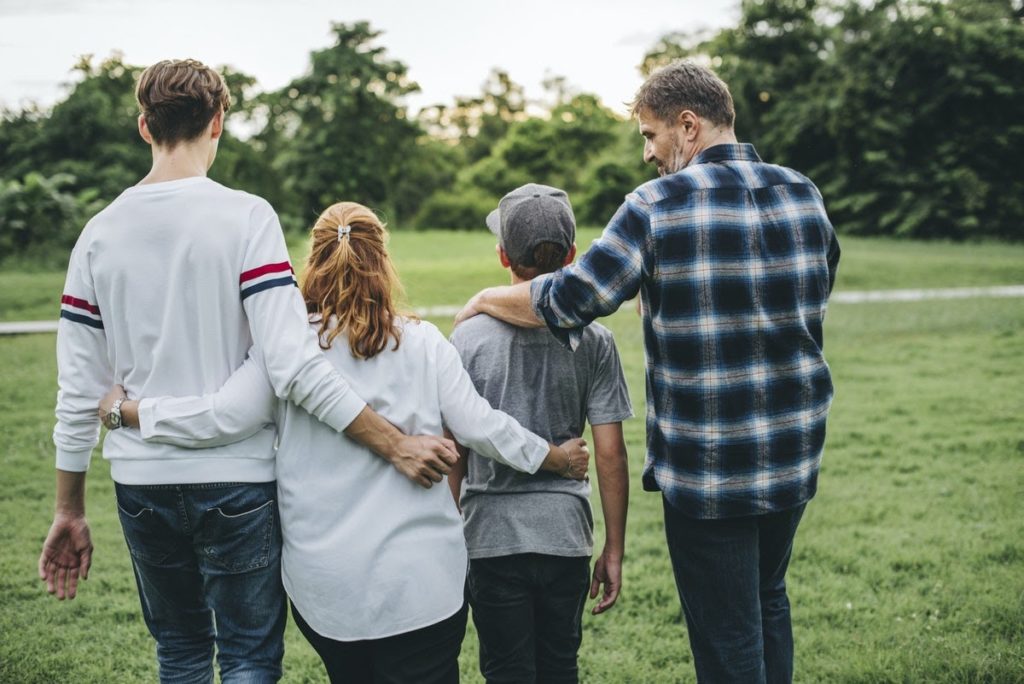What are the Benefits of Family Therapy?
- / Recovery

When an individual uses substances over a long period to the point of addiction, the impacts extend beyond them to their family. The effects that addiction can have on relationships soon diminish the trust and communication within families. In addition to being troubled by addiction, the family may also struggle with their emotional difficulties. Continued behavior could lead to resentment and damaged relationships.
However, recovery is all about rebuilding healthy relationships with yourself and with others. Among the most important relationships, you can restore the ones with your family. Being able to regain trust, support, and love from your family is a key factor in helping you maintain lasting recovery. Additionally, allowing your family to express how they feel is just as important to their healing process. Let’s look closer at the benefits of attending family therapy and how it can help your entire family.
The Purpose of Family Therapy
The purpose of family therapy is to address the interconnected nature of the family dynamic. Trained mental health professionals will help you and your family identify opportunities for growth. It also teaches you and your family where support is needed and how to foster support in relationships. By intervening in these complex relational patterns, a counselor helps nurture healing change throughout your entire family. Some of the insight you will gain include:
- Understanding addiction as a disease
- Extending forgiveness
- Managing expectations
- Teaching accountability
Setting Clear Treatment Goals
When you are struggling with addiction, you and your family may become so overwhelmed by stress that it becomes difficult to see the main problem. The focus is often placed on the substance—as it seems to represent the most glaring issue—rather than the person and trauma associated with it. Substances are just a symptom of a deeper issue. Therefore, seeking family therapy explores the root of the cause that is driving the addiction. Early on in therapy sessions, your therapist will help you identify personal and collective goals. Emotions may run high in these early sessions, so having a professional help moderate the conversation keeps the process productive instead of becoming confrontational.
Additionally, setting clear treatment goals will help you and your family understand one another better, but it gives everybody something to work on in recovery. It also helps to cultivate boundaries within your family dynamic. Having boundaries will allow your family to understand where your limitations are and what you will and will not accept. Such early goals will motivate you and your family to rebuild the bonds through trust and therefore lay the foundation for an environment that supports and respects one another.
Improved Communication
When you are going through treatment, you will likely encounter a range of emotions. Family members may feel concerned and even manipulated by your behavior. For example, if your family held an intervention for you, you might feel anger or betrayal. Such situations can make it harder for families to navigate relationships during treatment. Through therapy, a professional will be able to assess your family’s communication habits. Additionally, a counselor will provide you and your family with tools and practices that will highlight bad habits and help you manage them. Such practices could include writing how you feel or taking time to cool down if a conversation becomes too difficult.
The purpose of family counseling is to always bring you and your family back in line with your identified goals. Taking steps to improve communication only strengthens your family as a unit working together instead of apart. Additionally, working through conflicts and challenges will strengthen and repair the family dynamic. Being able to overcome obstacles together is not only empowering but instills a great deal of confidence within the family unit. These feelings may also help instill a feeling of self-worth.
Personal and Family Wellness
Since addiction affects the whole family, it can create painful and lasting emotional distress if not addressed with a professional. Family counseling sessions are tailored to each member of the family system including, parents, children, and other caretakers such as grandparents or siblings. The sessions will help you and your family work through emotional states in a comfortable, secure, and confidential environment. They will also help you and your family reach a place of forgiveness and acceptance.
As you all explore how to voice your personal needs, you will begin to better understand one another, strengthening the family unit. Becoming emotionally aware of each other’s needs and expressing them in healthy ways can greatly benefit your journey to recovery. It will also help improve the quality of life for everybody.
Seeking family counseling is an empowering journey that will help your recovery and bring your family back as a cohesive unit. At Choice House, we offer family counseling in addition to individual and group therapy. Our models work toward helping men overcome their fear of self-expression and opening up to loved ones. Our family counseling is an excellent addition to restoring the trust in your family and helps everybody better understand how addiction has affected you as a unit. If you or a loved one is in need, seek help today. Our counseling sessions reach beyond just treatment and are here as a pillar of support throughout your recovery journey. With provided 24/7 admissions, you will never have to worry or wonder if asking for help is the right thing to do. Learn more and reach out to Choice House by calling (720) 577-4422.
